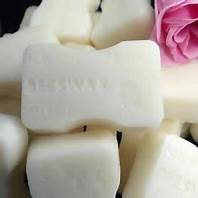What is collagen and do the drinks really work? The experts weigh in









What is collagen and do the drinks really work? The experts weigh in
It’s possibly the biggest buzzword in beauty, but what is collagen and how does it benefit our skin? Found in serums, eye creams, supplements, and even drinks—so many products promise a youthful complexion thanks to their hero ingredient: collagen. But can ingesting collagen or applying it topically really make a difference?
Provided by Woman&Home What is collagen? Woman with glowing skin from using collagen products
As with all skincare ingredients, it’s important to do your research first before you incorporate collagen into your skincare routine. To help, we've spoken to the experts to break down everything you need to know about this skincare savior—from what it is to how it works and the different ways you can stimulate collagen for a plumper, firmer complexion.
What is collagen? The experts explain all
We know that we should want more of it, but what is collagen and why is it important? “Collagen is one of the most abundant proteins in the body,” says Dr Anjali Mahto, consultant dermatologist, “it forms a scaffold that gives strength, rigidity, and support to the skin.” While there are at least 16 different types of collagen in the skin, “80-90% of human collagen is types 1, 2, and 3,” continues Mahto.
Although the body naturally makes its own collagen, as we age this production process slows down. “Collagen levels start to fall by approximately 1% per year after our mid-twenties,” says Mahto. That's bad news for our skin. “This decrease is gradual at first, before accelerating around the age of 50, which for women, often marks the beginning of perimenopause,” explains Dr Derrick Phillips, consultant dermatologist.
What does collagen do for the skin?
“Collagen is responsible for giving skin bounce and elasticity—keeping it smooth, supple, plump, and lifted,” says Phillips. When levels start to deplete, it shows with “hair thinning, wrinkles, brittle nails, and dry skin.” This is why many of the best skincare products promise to boost the skin’s own collagen production in a bid to plump up and firm our complexions.
Of course, different types of collagen play slightly different roles. Here, Dr Phillips breaks down the three key types:
- What is collagen type 1? “Known as the ‘beauty collagen’, this is the key building block of your skin cells which makes up about 80% of the dermis layer. Gram for gram, it’s stronger than steel and can improve skin health, structure, and firmness.”
- What is collagen type 2? “This makes up about 50% of the building blocks of our connective tissue, for example, cartilage protein, bones, tendons, ligaments, and so on. This is for those who need assistance with their joint health.”
- What is collagen type 3? “This type is also important for our skin’s health. It is the second most abundant collagen in human tissue and is more pliable than Type 1. Babies and children have a lot of Type 3, which is why their skin is so soft and plump. As you age, Type 3 is replaced by Type 1.”
-
How can you stimulate collagen?
Now we know that collagen is a naturally produced substance (and one we are losing with every year that passes) it follows to wonder what is collagen effectively stimulated by? The experts assure us that there are several steps you can take to help boost collagen production and prevent the breakdown of collagen in your skin.
- Wear SPF: First things first, invest in one of the best facial sunscreens. “UV light has been shown to activate enzymes known as matrix metalloproteinases; these break down collagen and damage the skin’s support structure, making it sag or deepening wrinkles,” explains Mahto. “These enzymes can also prevent new collagen production, so daily broad-spectrum sunscreen is key.”
- Use a retinoid: If you don’t already, learn how to use retinol and introduce retinol products into your skincare night routine. “This is a good place to start as they help to increase the production of collagen and elastin,” says Mahto.
- Eat healthily: “Certain foods such as meats, fish, and eggs are known to boost collagen levels in the skin,” says Phillips, “as well as foods that are high in vitamin C.” Avoid lots of sugar as this can lead to glycation, a process whereby sugar breaks down collagen.
-
- Don't smoke: No surprises here, if you're wondering what is collagen depleted by—smoking is high up on the list. “Smoking will decrease collagen levels by starving your skin of oxygen and constricting the blood flow which leads to collagen breakdown, hence smokers’ lines,” says Phillips.
- Exercise regularly: Phillips also states that exercise can help by increasing blood flow and oxygen to the skin.
Stimulation aside, we asked the experts what collagen offers as an added ingredient in creams and serums. "Collagen in skincare products largely acts as a moisturizer as the molecules are too large to penetrate the dermis and exert the structural benefit," says Phillips. This is why collagen is often included in the best moisturizers for dry skin, while other treatments such as best Vitamin C Serums can stimulate natural production" Other components of skincare products such as retinol and vitamin C can stimulate new collagen formation, helping to rejuvenate the skin," he adds.
Do collagen drinks work?
Collagen drinks are big business. Promoted by several A-listers including Jennifer Aniston and Khloe Kardashian, a new wave of liquid collagen formulas has recently hit the mainstream. “The theory behind collagen drinks is that they can help replenish your skin’s own collagen stores,” explains Mahto. “As a dermatologist, however, is it difficult to recommend these products based on current evidence,” she adds.
While robust evidence is scarce, Phillips points out that some studies show promising results. “Certain collagen drinks have been found to have an impact on the skin,” he says, “the main benefit being increased hydration.” Other reported beauty benefits include thicker hair and stronger, healthy nails. It is important to note that, “at present, there is no concrete evidence showing that liquid collagen will survive digestion, travel into your bloodstream, and make it your skin,” says Mahto.
If you are keen to give collagen drinks a whirl, look for formulas that are low in sugar—“many contain an unhealthy number of sugars and colorings,” says Phillips. Mahto’s advice? “I personally wouldn’t recommend buying collagen drinks. There are other ways you can protect and boost your collagen production”—and these are some of our favorites.
Reference: Woman & Home
Articles-Latest
- Skin tags: Why they develop, and how to remove them
- So That’s Why Your Skin Gets Crepey As You Get Older
- Eye Infection from False Eyelashes
- Teeth stain removal and whitening solutions
- Benefits of collagen for skin
- Why vitamin E should be part of your skincare regime
- Can gray hair be reversed?
- Hair loss affects 1 in 10 women before the menopause – here’s how to treat it
- Conscious ageing and Black skin: What happens when Black does crack?
- Your skin color may affect how well a medication works for you — but the research is way behind
- The C word Cancer
- Astringents
- How does light therapy work? The science behind the popular skincare treatment
- The Most Offensive Fashion Police Criticisms of All Time
- Everything you need to know about lip filler migration, as told by the experts
- Pig semen and menstrual blood – how our ancestors perfected the art of seduction
- Everything you need to know about benzoyl peroxide
- We've bleached, relaxed, and damaged our hair to make ourselves look more white
- Will this be the year that facial filler is cancelled?
- Shock of the old: 10 painful and poisonous beauty treatments
Cosmetic ingredients
LOGIN
Who's On Line
We have 69 guests and no members online
Articles-Most Read
- Home
- White Bees Wax
- Leucidal
- Cosmetic Preservatives A-Z
- Caprylyl Glycol
- Cosmetics Unmasked - How Safe Are Colorants?
- Cosmetics Unmasked - Choosing Ingredients
- Cosmetics Unmasked - Colorants And Fragrances
- EcoSilk
- Toxic Beauty - Who's Looking At Cosmetics?
- Cosmetics Unmasked - Fragrances
- Microbes and Cosmetics
- Chemicals Lingering In The Environment
- Microbes and Safety Standards
- Yellow Bees Wax
- Potassium Sorbate
- Toxic Beauty - Hazardous To Your Health
- What's Happening in the USA - Cosmetic Regulations - Toxic Beauty
- Synthetics In Cosmetics - The Industry Fights Back
- Fresh Goat's Milk Soap
- Active Ingredients
- Cosmetics Unmasked - Listing Cosmetics
- Toxic Beauty - Cocktails and Low Doses
- Natural Waxes A-Z
- Natural Butters A-Z




